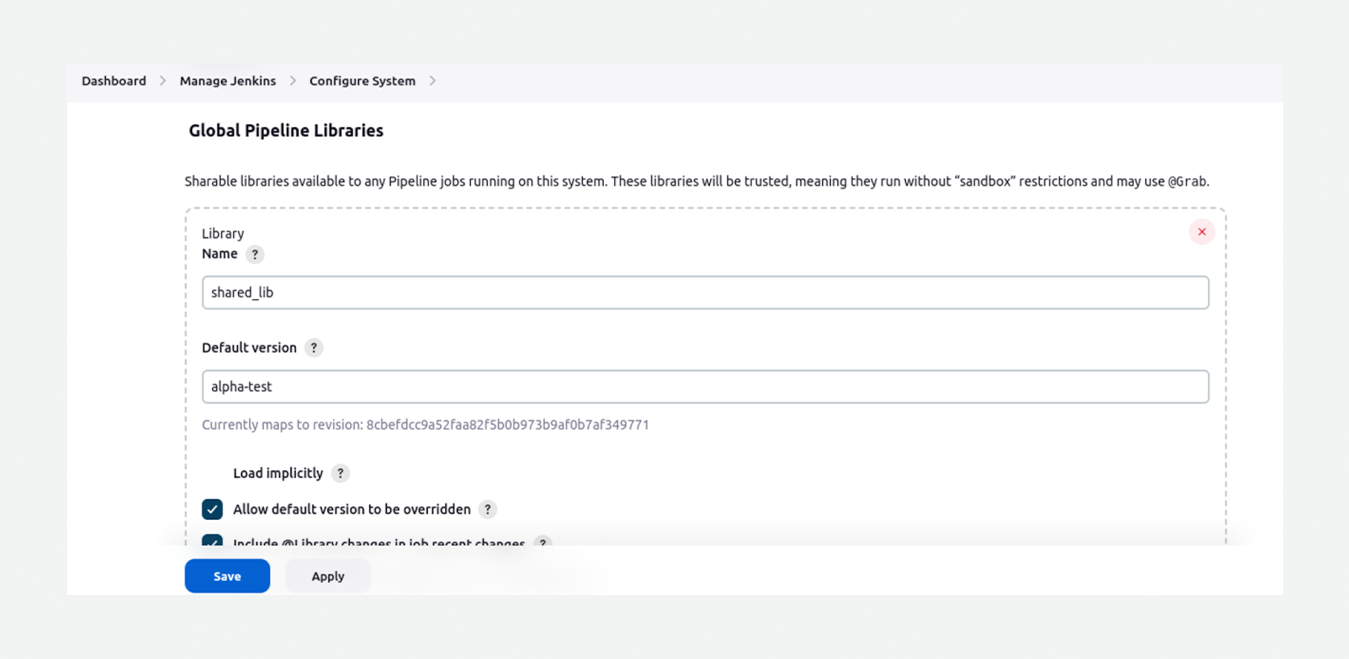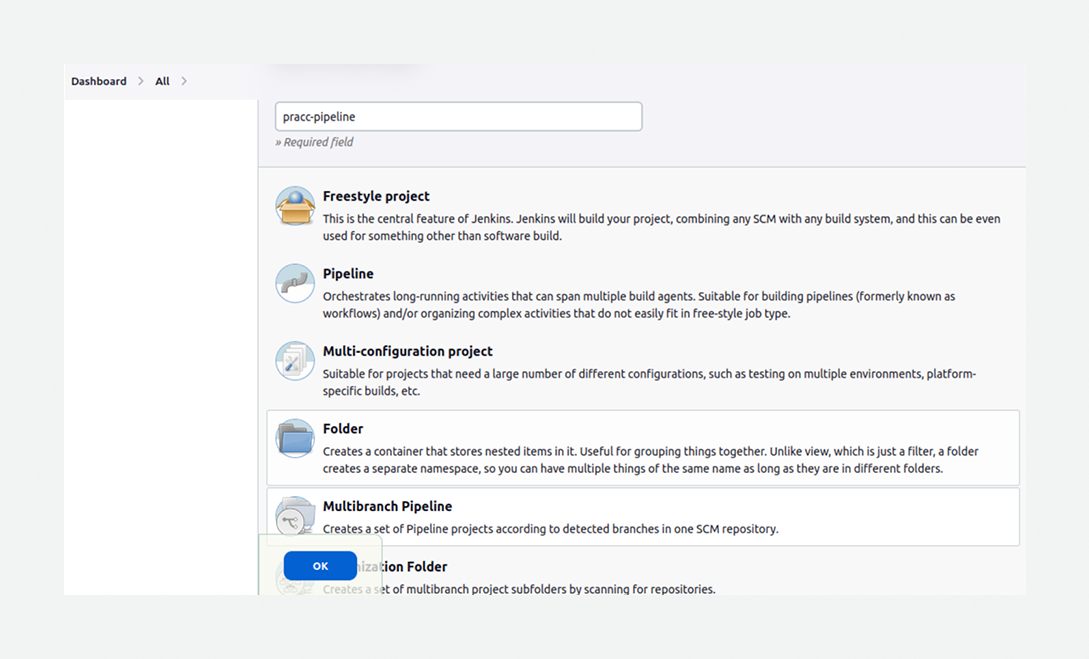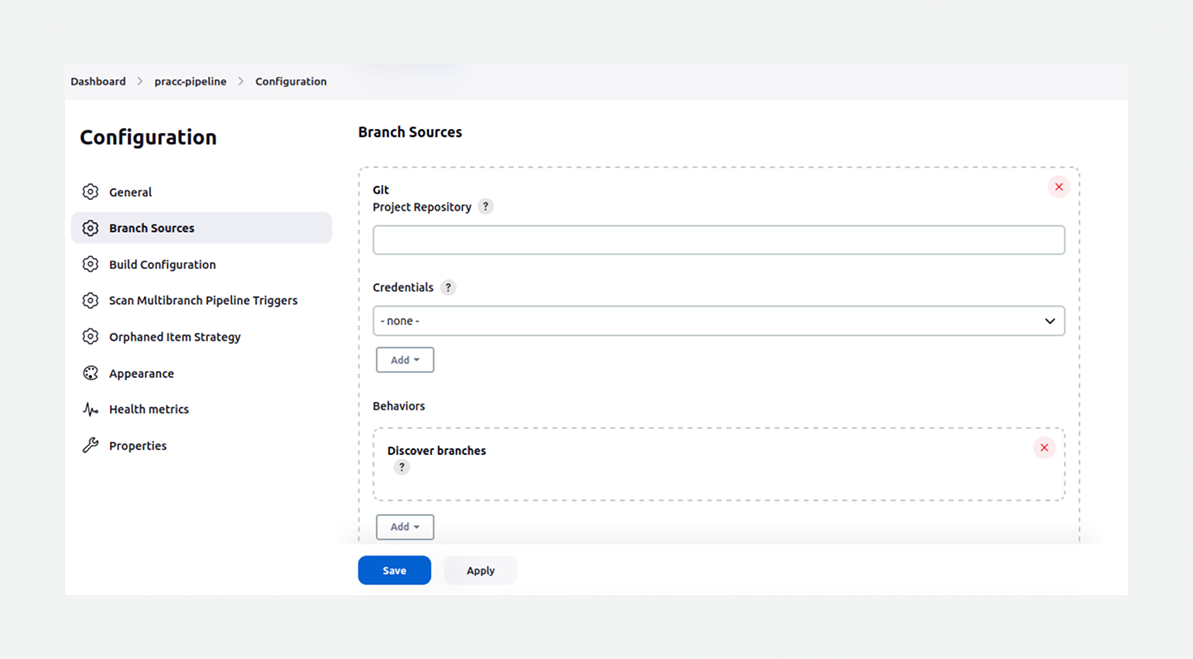Jenkins is a popular open-source automation server that is used to automate the software development process. It enables you to build automated pipelines that speed up the development, testing, and deployment of your applications. Jenkins shared library, which streamlines the development process and can help you save time and money, is one of its most powerful features.
This article talks about Jenkins shared libraries and how they can accelerate your cloud cost management strategies.
What is a Jenkins Shared Library?
A Jenkins Shared Library is a set of code that can be reused across multiple pipelines. Although it resembles a typical Java library, it was created specifically to be used in Jenkins pipelines. You can create unique steps and functions that can be used in your pipelines by defining them in shared libraries rather than having to write the code from scratch each time.
A Git repository can be used to store the shared libraries, making it simple to manage and version them. In order to further increase the functionality of your Jenkin pipeline shared library, you can also use external libraries.
How to setup shared libraries on your Jenkins server
- You need to have your GitHub credentials set on the Jenkins server for cloning the Jenkins shared library and application repo. If not, then go to Manage Jenkins>Credentials>Global credentials and add the required credentials.

- Shared Library Declaration: After configuration, you need to provide a shared library name and repo into the Global Pipeline Libraries. Go to Manage Jenkins> Configure system>Global Pipeline Libraries. Here you can see Pipeline Libraries section as shown below:

- To create a new multi-branch job, click on New-item in the Dashboard and give a name to your job. Then select Multibranch Pipeline.

- Then in multi-branch, add your source-code repository with branch name and credentials.

- Add the Jenkinsfile in the application repo with the following lines in it:

How Shared Libraries Help You Save Money
Here are a few ways in which Jenkins Shared Libraries help you save your overall operating costs.
Reduced Development Time
The ability to speed up the development process is one of the main advantages of using shared libraries. You can simply reuse the code that is kept in the shared library instead of having to write unique code for each pipeline. By doing this, you can shorten the time it takes to create your pipelines, which could ultimately help in cost savings.
Improved Pipeline Consistency
You can achieve greater consistency throughout your pipelines by using shared libraries. You can make sure that each pipeline follows the same procedure by creating custom steps and functions that can be used by different pipelines. This can assist you in lowering the possibility of mistakes and inconsistencies in your pipelines, which can ultimately help you save money and perform cloud resource optimization.
Reduced Maintenance Costs
Additionally, shared libraries might lower your maintenance expenses. You can make updates and enhancements to your code in one place by centralizing it in a shared library. This can save you time and money by preventing you from having to make the same adjustments in numerous pipelines, which also makes it one of the most effective cloud FinOps tools.
Scalability
Finally, shared libraries can aid in your development process' increased scalability. You can keep reusing the code from the shared library as your development team expands, which can help you retain consistency and speed up development. You may scale your development process in this way without having to recruit more people, which can also help you in cloud cost optimization.
Reusability and Code Standardization
Shared libraries encourage standardization and code reuse within your organization. You can use the preset functions and procedures in the shared library rather than having to come up with new methods for basic activities. This not only reduces development time but also guarantees standardized and consistent practices across all of your workflows. It lowers the likelihood of mistakes and raises the general caliber of your program.
Collaboration and Knowledge Sharing
Your development teams will work together more effectively and share expertise thanks to shared libraries. Developers can contribute to and gain from a common codebase by consolidating reusable code in a library. It encourages a collaborative environment where programmers may benefit from one another's experience and expand on current solutions. By accelerating development cycles and preventing wasteful duplication of effort, this shared knowledge eventually reduces costs. Engineers could also collaborate and work together on improving the Jenkins shared library best practices.
Easy Maintenance and Updates
Your pipelines and procedures might need to be optimized as your programme develops. Your pipelines will be easier to update and maintain if you use shared libraries. You may make modifications to the shared library code since it is kept in a central repository, and those changes will instantly be reflected in all pipelines that utilize the library. This streamlines upkeep, lowers the possibility of discrepancies, and decreases the time and labor required for manual updates.
Extensibility and Integration
Jenkins' functionality may be expanded and integrated with other tools and systems via shared libraries. Your shared library code might include additional libraries and plugins, facilitating easy interaction with third-party technologies. With this flexibility, you can make the most of your current investments in tools and technologies rather than having to create bespoke solutions from the beginning. You may also practice cloud cost management and save costs by making the most use of already available resources by using shared libraries' extensibility.
Automated Testing and Quality Assurance
Shared libraries' codebases may have automated testing tools and quality control procedures. This guarantees that the shared code has undergone extensive testing and is up to par. You may lessen the possibility of introducing bugs and mistakes into your pipelines by incorporating testing and quality checks into your shared library. As a result, less expensive debugging, troubleshooting, and problem-solving are required to resolve problems brought on by inadequately tested code.
Flexibility and Adaptability
Shared libraries provide the flexibility to adapt and evolve your pipelines as your requirements change. You can easily modify and extend the shared library code to accommodate new features, technologies, and best practices. This adaptability helps you stay agile in a rapidly changing software development landscape and could also be considered as a part of the cloud optimization techniques or strategies. By leveraging shared libraries, you can quickly respond to market demands, customer feedback, and industry trends, thereby saving both time and money.
Conclusion
Jenkins Shared Libraries are an effective solution that can aid in cloud cost optimization and an overall cost reduction of your software development initiatives. Shared libraries can speed up your development process and enable you to make long-term financial savings by decreasing development time, enhancing pipeline consistency, lowering maintenance expenses, and attaining higher scalability. It’s high time you explored how shared libraries can help you reach your cost-saving objectives if you are not already using them in your Jenkins pipelines.
Get your entire cloud setup audited and implement architectural-level best practices, with a team of Certified Cloud Experts from CloudKeeper. Book a free demo today!
